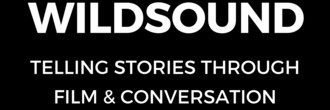TO SPEAK IS TO LIVE – FREED FROM STUTTERING, 55min., Documentary
Directed by Sonja Schütz, Sabine Schütz
In the documentary, 11 formerly stuttering people aged 9 – 30 years tell of their daily, painful experiences around stuttering with its limitations. Stuttering affects 1% of the world’s population.
They all felt powerless at the mercy of stuttering and were looking for a way out. The therapy odyssey of the affected people, which sometimes lasted for years, left its traces, destroyed hope and made a vision of the future according to one’s own ideas impossible.
http://www.freed-from-stuttering.com/
https://www.instagram.com/freed_from_stuttering
Get to know the filmmaker:
1. What motivated you to make this film?
Our intention for this film was to show that stuttering can be managed and that in any language.
We have often been accompanied with the therapy in Germany, Austria and Switzerland by television stations, which then showed different people before and after, but we ourselves never had any influence on the editing and the presentation of our work and the depiction of the effects of stuttering on the overall development of the person affected. We wanted attention to this condition, which is chronically classified, and an understanding by society that sufferers often suffer much more than people think. Above all, we wanted to give hope for help and back it up with statements from various professionals. It is possible to free oneself from stuttering and to achieve a normal, free speech and life. We would like to make this possible for many more people!
2. From the idea to the finished product, how long did it take for you to make this film?
The idea to produce our own film came to us in the fall of 2020, but it took a while until the concept was clear to us. We very quickly found many volunteer former patients for this documentary, unfortunately we could not include all of them in the film. Then in March 2021, filming began and lasted until the fall of 2021. The situation with Corona made the filming a bit more difficult, of course, because some of the filming days took place in the lockdown and a lot of requirements had to be met. The film was then completely finished at the beginning of 2022.
3. How would you describe your film in two words!?
Transformation and hope.
4. What was the biggest obstacle you faced in completing this film?
The biggest obstacle was actually making about an hour out of the endless hours of footage. Everything seemed important to us, and it was hard not to be able to show so much, but little by little we got the view for the most important statements of all participants.
5. What were your initial reactions when watching the audience talking about your film in the feedback video?
We were very, very happy to see these many positive and profound reactions from different people. The fact that people who otherwise have nothing to do with the subject of stuttering were able to put themselves in the shoes of those affected in such a way and perceived the profound change after the therapy was very moving for us.
We are also happy that normal speaking people appreciate the ability to speak fluently more through the film. We thank everyone very much for taking the time and effort to make these statements.
6. When did you realize that you wanted to make films?
We are not classical filmmakers. It was simply a matter of the heart for us to be able to spread hope, since it is predominantly denied that one can be freed from stuttering.
7. What film have you seen the most in your life?
We often saw the Dead Poets Society.
8. What other elements of the festival experience can we and other festivals implement to satisfy you and help you further your filmmaking career?
We can’t think of anything to say about that.
9. You submitted to the festival via FilmFreeway. How has your experiences been working on the festival platform site?
We have had only positive experiences with this site so far. Everything is very easy to find and the communication afterwards with the festivals was very smooth.
10. What is your favorite meal?
Sabine Schütz: Cheese spaetzle with salad (A specialty from southern Germany)
Sonja Schütz: Crepe with chocolate
11. What is next for you? A new film?
Next, we will start teaching speech therapists.
Since the therapy can be performed in almost any language, it is a matter of the heart for us to provide this help to as many people who stutter as possible. For this purpose we are looking for franchise partners from different countries and speech therapists who will establish the therapy in the respective countries/cities. Since 1% of the world’s population stutters and the suffering is very great, it is a great concern to us that this worldwide unique concept changes the world view in stuttering therapy. We would like to leave traces on this world and who knows, maybe in 2-3 years there will be the next film about the different stations where the therapy will be carried out then.
